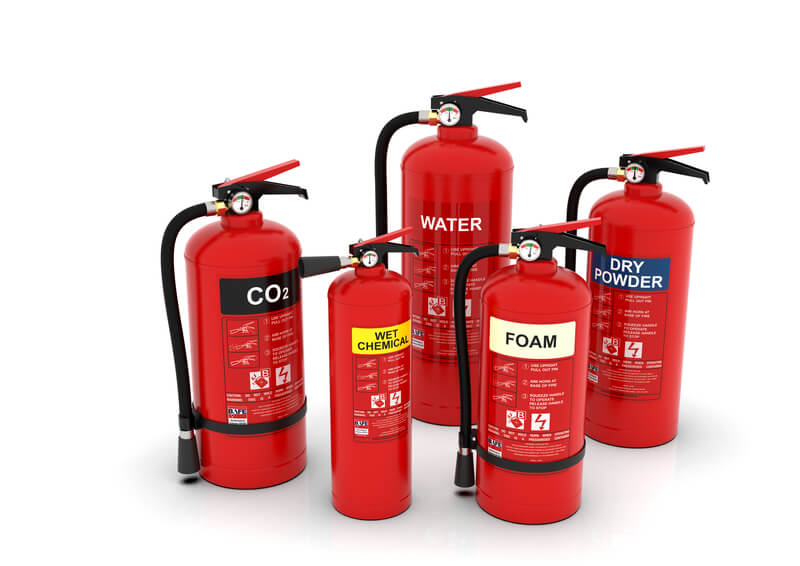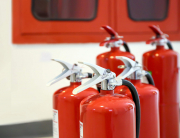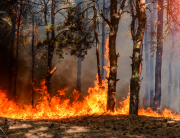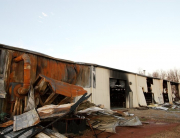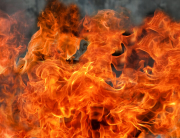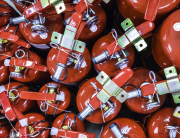To keep your business or rental property safe from fire damage, it’s important that you have fire extinguishers available near all access points.
It’s essential that you fully understand the likely causes of fire in the property based on the activities that take place there. This can help you select the correct type of fire extinguisher and train the people in the property how to use each individual one to help properly fight a fire in times of need.
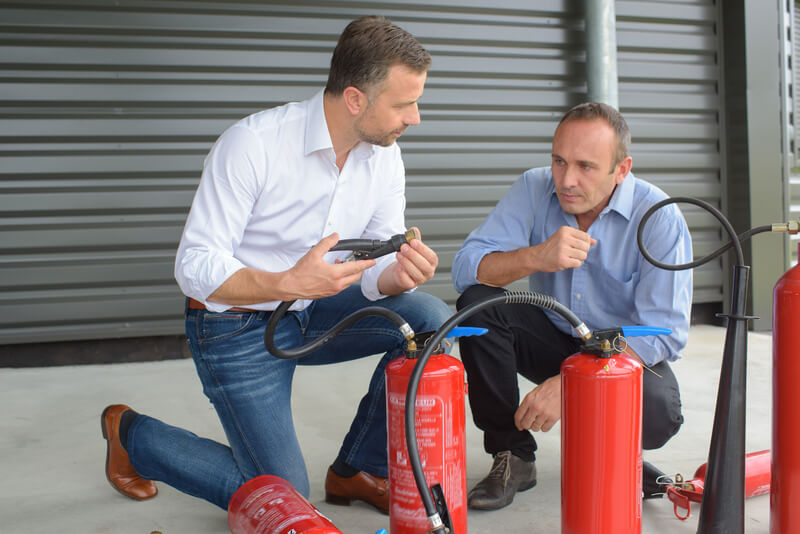
What Are The Different Types Of Fire Extinguishers?
There are lots of different types of fire extinguishers and each is tailored to work best when fighting different sorts of fires.
Water
This is the most common type of fire extinguisher used for class A fires. These are fires which break out from combustibles such as wood or paper. The water extinguisher isn’t a good fit for office spaces where there are electrical faults as this may cause more safety issues. These extinguishers will be identifiable by their red labels.
AFFF Foam
This is safe for combustible objects such as wood or paper, but it’s also safer for use around electrical equipment as it suffocates the flames with a foam, rather than cooling with water. The foam extinguishers have a cream label.
Carbon Dioxide
These class B extinguishers are used for fires which break out due to electrical faults. The CO2 deprives the source of the flames of oxygen, which is something that a fire needs to spread. The CO2 extinguishers have a black label.
ABC Powder
These blue labeled extinguishers work for classes A, B and C as the powder dispensed covers the area to remove any oxygen without aggravating the source of the fire or nearby combustibles.
De-Ionised Water Mist
This extinguisher has a white label and can be used for any fire from class A, B or C as it cools the fire using a water mist which is fine enough to not create sparks or electrical faults if it falls on sockets or other electrical equipment and ports.
Wet Chemical
Wet chemical extinguishers identified by their yellow label, work best on class F fires which are used by chemical processes or kitchen malfunctions – deep fat fryers for example.
What Happens If I Use The Wrong Type Of Fire Extinguisher?
Using the incorrect type of fire extinguisher can actually worsen a fire or make it more dangerous. For example, if you use a water extinguisher in an area with a lot of electrical equipment, even a fire that was started through combustible materials may develop into an electrical fire.
This will require more specialist care and equipment to put out the fire, meaning it is likely to grow while you’re waiting for the fire brigade to arrive. This could put other people in danger and may contribute to more property damage.
If you’re unsure of how to fight a fire or don’t have the correct type of extinguisher available, it’s always better to close all the fire doors to prevent a spread and call the fire brigade. This will ensure you contain the fire and prevent as much damage as possible.
If you need more advice about fire extinguishers or need to get one installed, please contact us for more details.

